Remembering the genocide of Dolli Jafayati
Genocide 10:50 AM - 2021-02-22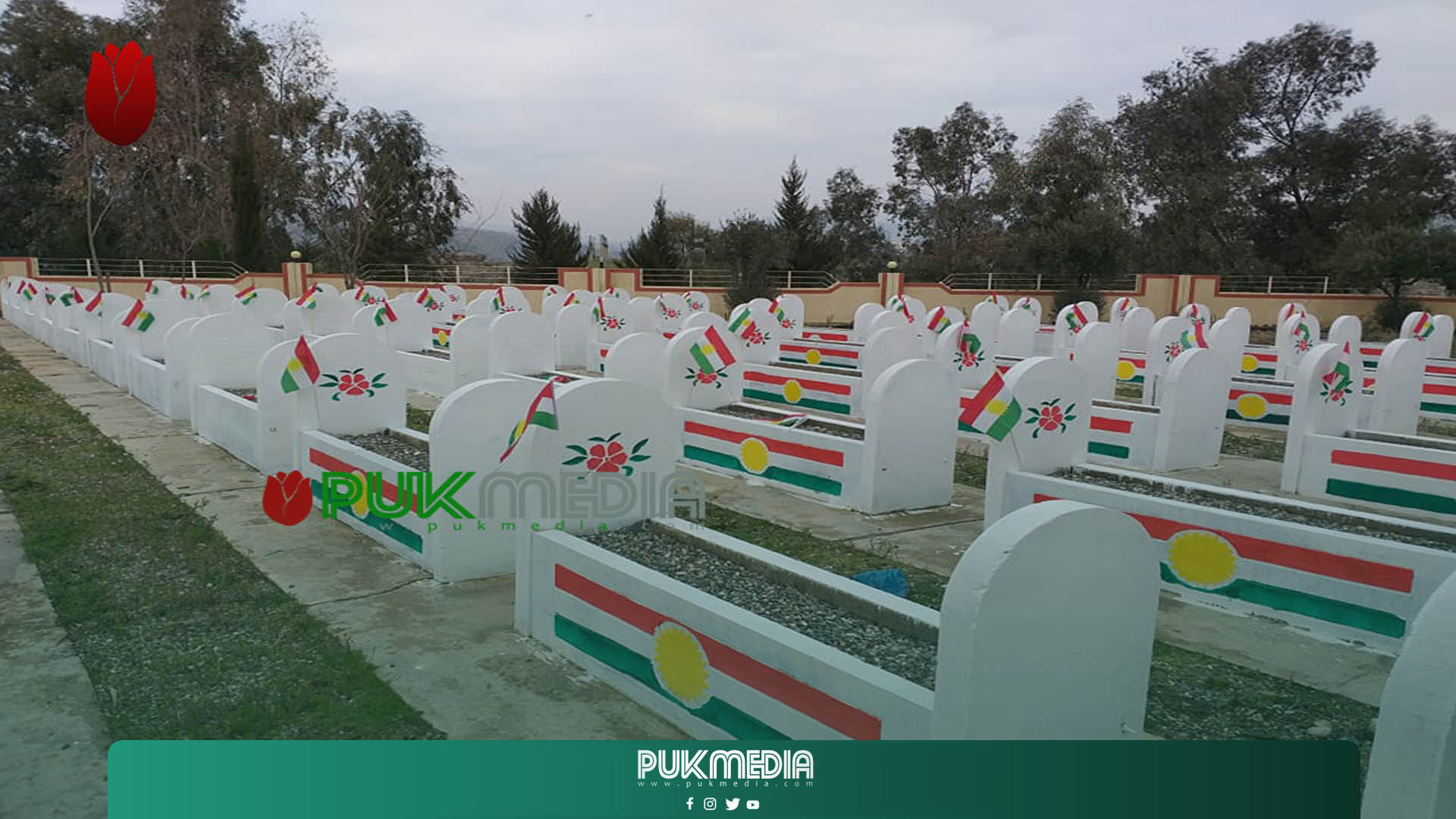
.
Today, February 22, marks the anniversary of the horrendous genocide attempt that the people of 'Dolli Jafayaty'-the town of Dukan, 70 km northwest of Sulaymaniyah- were subjected to.
On February 22 of 33 years ago, the former Iraqi Baath regime bombed Dolli Jafayaty area and carried out the first stage of the notorious Anfal operations, and these operations led to the death and disappearance of dozens of the people of the region.
The decrees to commemorate the martyrs of Dolli Jafayaty will be limited to laying wreaths of flowers at the martyrs' shrine with no mass gatherings and ceremonies due to the restrictions to limit the spread of coronavirus and following preventive measures.
The stages of the Anfal campaigns
* The first Anfal: Sulaymaniyah, besieging Sargallu on February 22 until March 19, 1988.
* The second Anfal: Sulaymaniyah's Qardagh, Bazian and Darbandikhan regions from March 22nd until April 1, 1988.
* The third Anfal: Garmian region including Kalar, Bawnur, Kufri, Douz, Sengaw, Qadir Karam, on April 20 of the same year.
* The fourth Anfal: The boundaries of Small Zab plain, meaning the area of Koya, Taq Taq, Aghjeler, and Nawshwan, on May 3 to May 8, 1988.
* The fifth, sixth and seventh Anfal: the vicinity of Shaqlawa and Rawanduz on May 15 until August 26.
*The eighth Anfal: The last phase took place in Badinan, Amedi, Akre, Zakho, Sheikhan, Dohuk, from August 25 until September 6 of the same year.
Anfal was a mass killing campaign, genocide, and organized extermination according to all standards. This means that the Anfal was the first step to annihilate the Kurdish community and the destruction of villages in Kurdistan, as the strategy of the Anfal campaigns was to destroy all the defensive capabilities of the Kurdish community.
The Anfal crimes that caused the death of over 182,000 innocent Kurdish people began with military operations and were divided into eight stages. The first phase of the campaigns began in the Sulaymaniyah region on February 22, 1988, and the final phase of the Anfal campaigns, known as the Anfal conclusion, was in the Badinan region on September 6, 1988. All kinds of internationally prohibited weapons were used during the Anfal campaign, especially chemical weapons such as mustard, cyanide, nerve gas, and phosphorous.
According to international norms and standards for crimes, the Anfal campaign falls within the framework of genocide crimes by every means, and this fact was clearly indicated in the report of international organizations monitoring human rights. The Anfal file entered the Iraqi High Criminal Court and on August 21 2006, a pleading was given on the Anfal in Baghdad court, where the court issued its decisive decision on the Anfal file, and accordingly, the Anfal crimes were defined as genocide.
The Anfal file included the names of hundreds of defendants who were the main perpetrators of these crimes, but only these accused were questioned and tried (Saddam Hussein, Former President of the Republic of Iraq, Ali Hassan al-Majid, Secretary of the North Office of the Baath Party, Sultan Hashem, the Army Commander, Saber Abdul Aziz al-Douri, Head of the Military Intelligence Organization, Hussein. Rashid al-Tikriti, deputy in charge of implementing the Anfal campaigns, Taher Tawfiq al-Ani, governor of Nineveh, Farhan Mutlaq al-Jubouri, military intelligence official in northern Iraq).
Judgments issued against the defendants in the Anfal case
On Sunday, June 24, 2007, the Iraqi High Criminal Court for the Crimes of Anfal sentenced five defendants to death and life imprisonment in the Anfal case.
1- Execution by hanging of the accused Ali Hassan Al-Majid, nicknamed Chemical Ali, after he was convicted of genocide and crimes against humanity in the Anfal crimes.
Judge Muhammad al-Araibi al-Khalifah, who presided over the session, said: The court convicted the accused Ali Hassan al-Majid of applying the policy of the fallen Baath Party and the goals of ousted Saddam Hussein in northern Iraq and ordering the army and security forces to use chemical weapons in a large-scale attack that resulted in the death of thousands of citizens from the Kurds.
2- The death sentence by hanging for the accused, Sultan Hashem Ahmed Al-Tai, Minister of Defense.
3- The death sentence by hanging for the accused, Hussein Rashid Al-Tikriti, Deputy Chief of Staff.
4- Life imprisonment sentence for the accused, Saber Abdulaziz Al-Douri, Director of Military Intelligence.
5- Life imprisonment sentence for the accused Farhan Mutlaq Al-Jubouri on charges of participating in preparing for the crime of genocide.
6- The judge dropped the charges against Taher Tawfiq Al-Ani, former governor of Nineveh due to lack of evidence.
PUKmedia
More news
-
German Forces Commander Ended his Mission at Mam Jalal's Grave
12:28 PM - 2024-04-23 -
Golden Bla Awards Ceremony Takes Place in Sulaymaniyah
11:32 AM - 2024-04-23 -
PUK Official: PUK is Committed to Holding Elections on Time
11:04 AM - 2024-04-23 -
Turkish President Meets Kurdish Officials in Erbil
10:42 AM - 2024-04-23
see more
U.S. State Department Mentions the Deterioration of Journalists' Rights in Iraq & Kurdistan
06:48 PM - 2024-04-25
10 Notable Individuals Receive Golden Bla Award
09:27 PM - 2024-04-23
DPM Talabani Asks Turkish President to Lift Ban on Sulaymaniyah Airport
11:43 AM - 2024-04-23
Iraqi & Turkish Presidents: Problems Should Be Resolved Through Dialogue
05:00 PM - 2024-04-22
Most read
-
U.S. State Department Mentions the Deterioration of Journalists' Rights in Iraq & Kurdistan
Reports 06:48 PM - 2024-04-25 -
Another International Report Mentions Kurdistan's Limited Freedom
Reports 09:24 PM - 2024-04-25

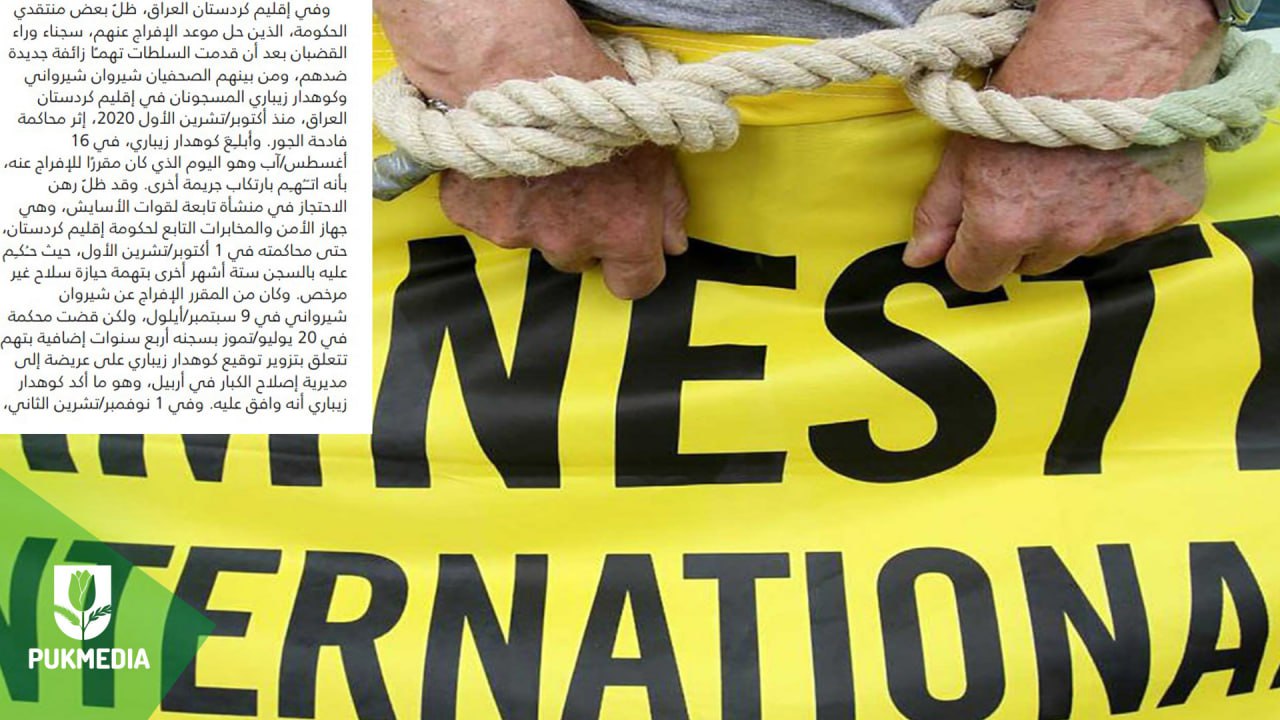
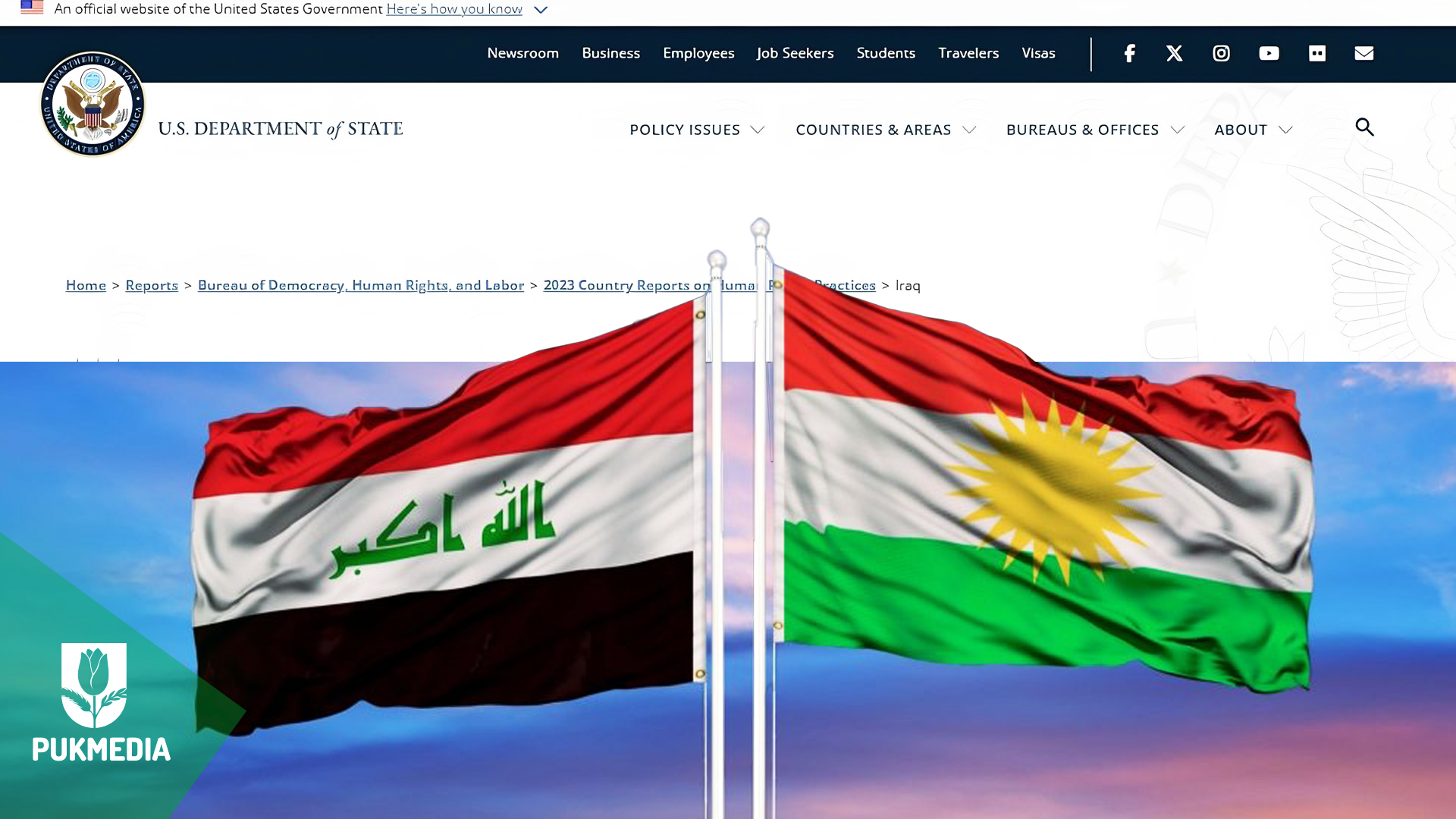
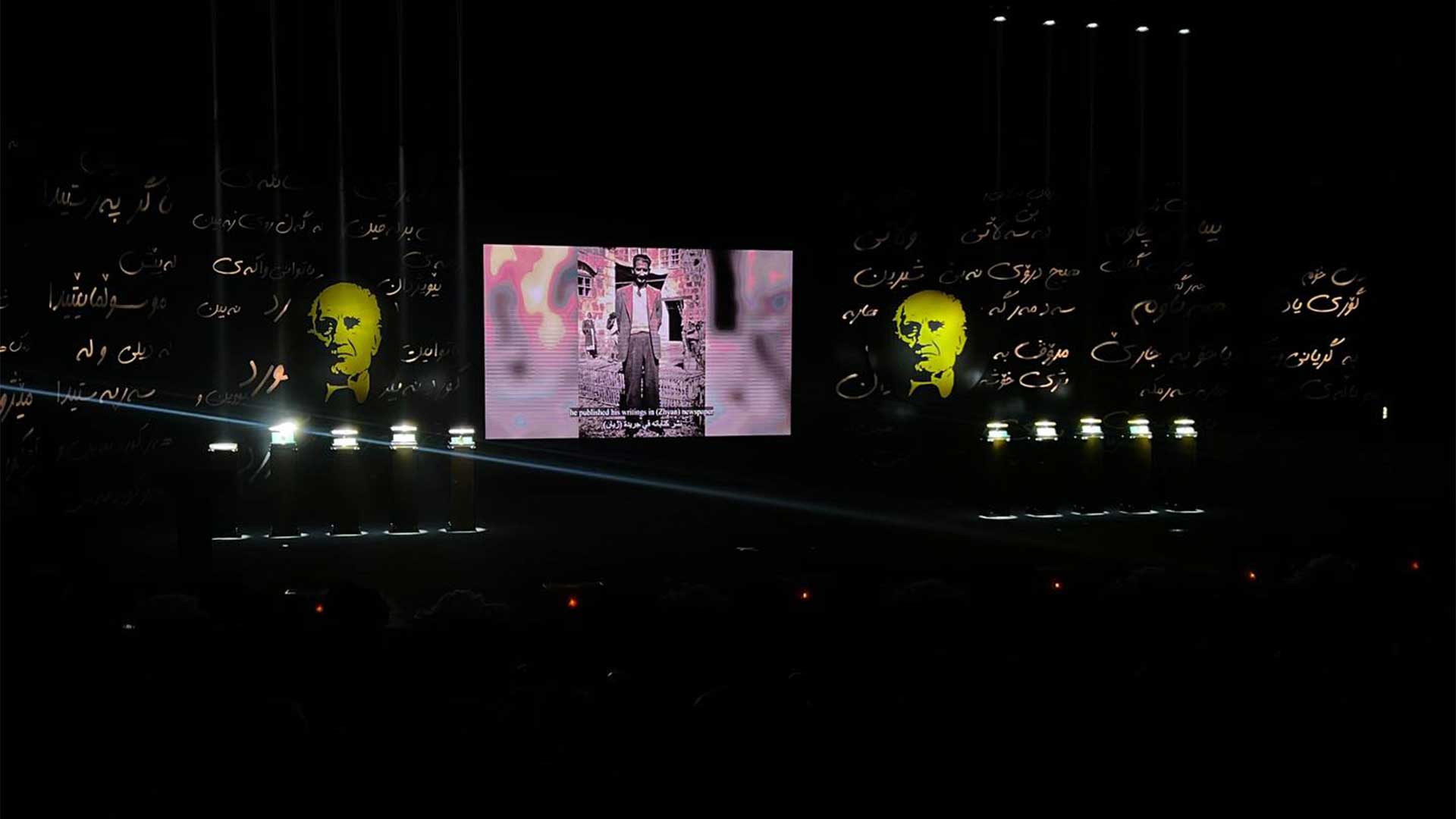
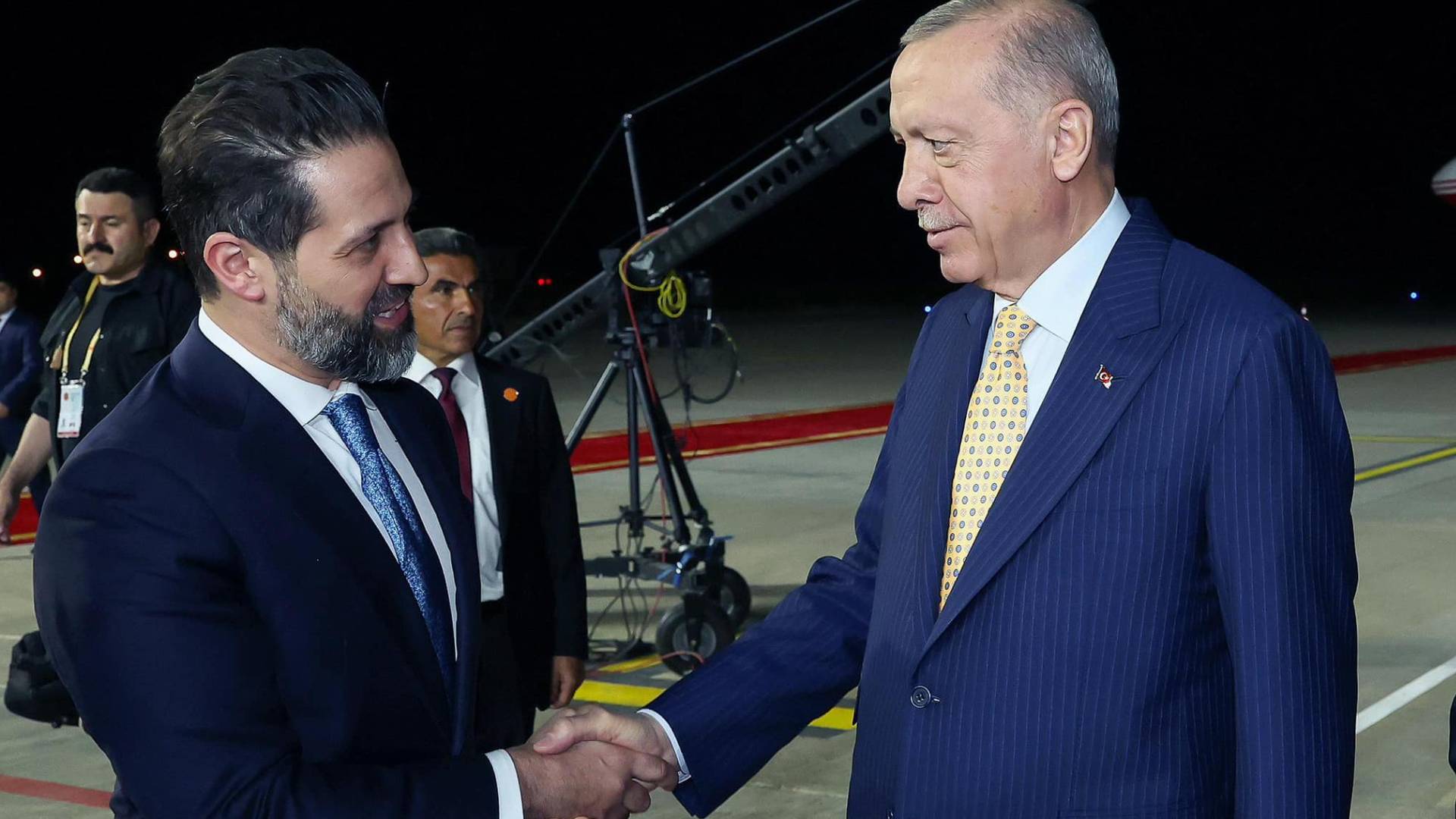
.jpg)
 Application
Application


